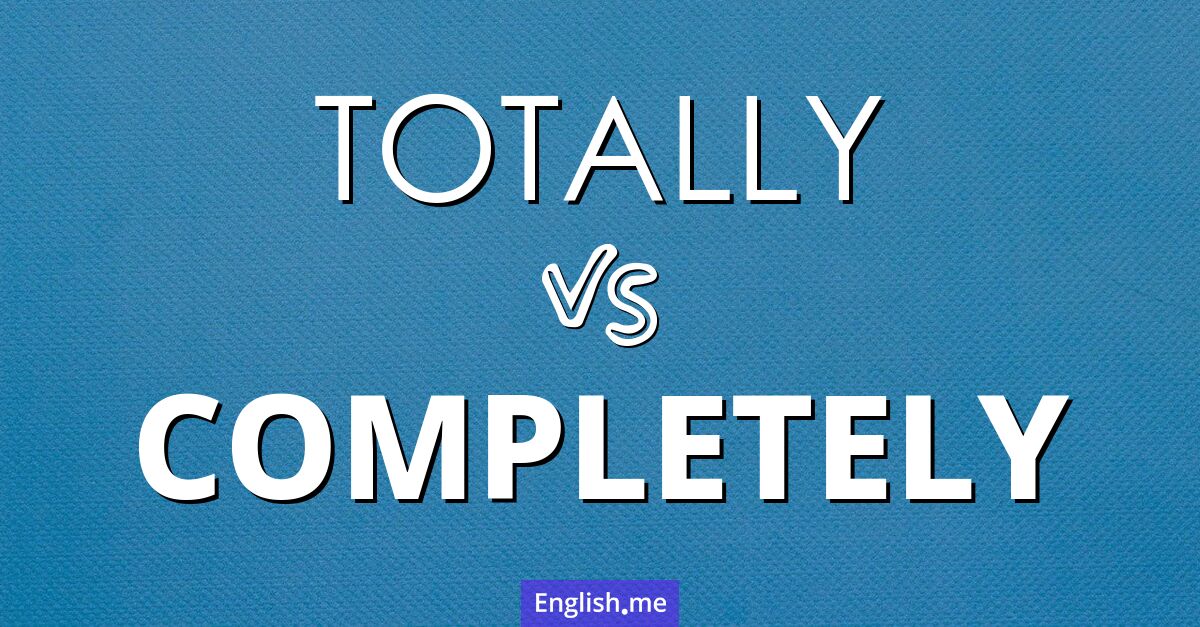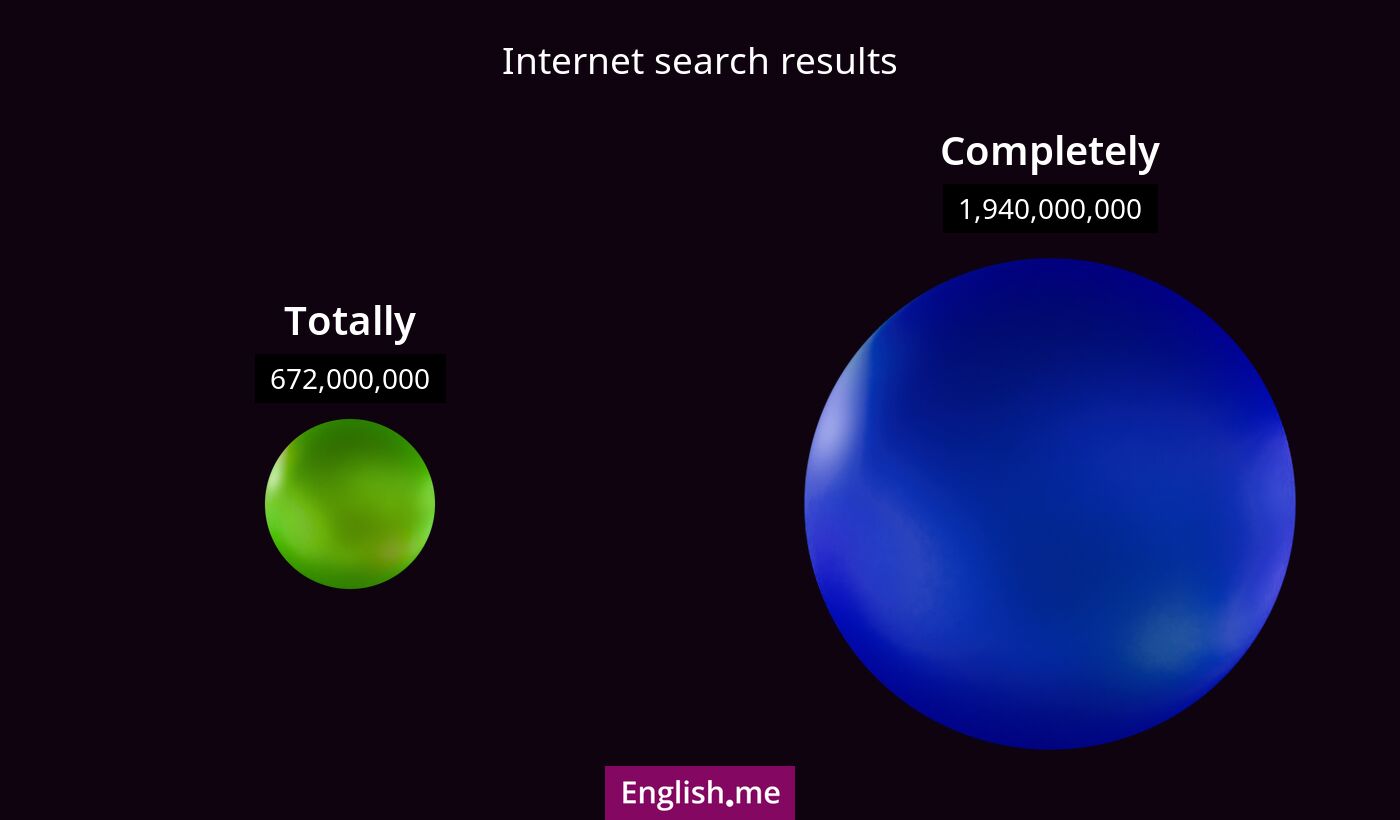"Totally" vs. "completely": exploring two sides of fullness
Reviewed and edited by  Anwar Kareem 21/10/2024, 12:04
Anwar Kareem 21/10/2024, 12:04
English.me team member

 What is similar?
What is similar?
Both words are adverbs used to emphasize the entirety or full extent of something. They often indicate that something is done to the fullest degree or that nothing is left undone.
 What is different?
What is different?
The contexts where they are used can vary slightly. "Totally" is often used in informal speech and can sometimes have a casual or conversational tone. "Completely" tends to be more neutral and may be used more in formal writing or situations.
 Which one is more common?
Which one is more common?

 Examples of usage
Examples of usage
Totally- I am totally convinced that this is the right choice.
- She was totally surprised by the party.
- He totally understood the concept after the explanation.
- The building is completely destroyed.
- She was completely focused on her work.
- I completely agree with your point of view.

 English
English español
español française
française italiano
italiano deutsche
deutsche 日本語
日本語 polski
polski česky
česky svenska
svenska Türkçe
Türkçe Nederlands
Nederlands